7 Of The Best Referral Program Ideas: What No One Is Talking About

When you buy something through one of the links on our site, we may earn an affiliate commission.
How much is a word-of-mouth referral worth to your business? If you're not sure, consider this: according to a Nielsen report, 92% of consumers around the globe say they trust referrals from friends and family more than any other form of advertising.
Think about it: which do you trust more - an advertisement or a recommendation from a friend?
You trust the recommendation from a friend because you know they're not trying to sell you something; they want to share their good experience. Consumers say they trust referrals 2x-10x more than any other type of advertising (check out our list of the best referral software here).
And when it comes to making a purchase decision, 74% of consumers say referrals from friends are essential. Referred customers are 50x more likely to buy the product!
With numbers like that, it's no wonder businesses big and small place such a high value on referrals.
In other words, referrals are the Holy Grail of marketing, yet too many businesses don't have a solid strategy for generating them.
So if you're looking to boost your business, start by asking your happiest customers for referrals.
By following these simple tips, you'll be well on generating valuable word-of-mouth referrals that can take your business to the next level.
Contents
- What are the benefits of a referral program? (Why start one?)
- What is a successful referral program idea?
- What kinds of referrals are there?
- What makes a good referral program?
- Best referral program ideas
- Best Referral Program Idea #1: Contest or giveaways
- Best Referral Program Idea #2: Social Gifting
- Best Referral Program Idea #3: Create a strong why surrounding a cause
- Best Referral Program Idea #4: Customer Loyalty tiers
- Best Referral Program Idea #5: Reward with Store/Subscription Credit
- Best Referral Program Idea #6: Mystery Gifts
- Best Referral Program Idea #7: How do you start a referral program?
- FAQ
What are the benefits of a referral program? (Why start one?)
There are many benefits of a referral program, but here are just a few:
People trust referrals
As mentioned above, referrals are one of the most potent forms of marketing. When someone hears about your product or service from a friend, they're much more likely to trust what they're hearing and try it.
It hits a targeted audience
A referral program allows you to tap into your current customer base to reach new, targeted audiences. For example, people share their experience with your product with friends and family who they think will benefit from it the most.
Multiplies Loyal Customers

Referred customers are more loyal than other customers and are more likely to refer your business to their friends.
Improved Customer Retention

Customers who their friends refer are more likely to stay with your company longer.
Cost-Effective Marketing (with enormous ROI)
Referral programs are one of the most cost-effective marketing strategies since they rely on word-of-mouth instead of paid advertising.
More user-generated content
A referral program can generate much user-generated content, such as reviews and testimonials, which can help you attract more customers.
What is a successful referral program idea?
A solid referral program idea should consider the following elements: who your target audience is, what are you offering as an incentive, what type of program structure will work best, and how will you promote the program.
Remember that a referral program is only as successful as its ability to generate quality leads that convert into customers.
To that end, offering an incentive appealing to your target audience and easy to redeem is essential. For example, a discount on a product or service is more likely to be successful than a drawing for a prize.
Regarding program structure, a points-based system can be effective because it allows participants to track their progress and see how close they are to receiving the incentive.
Finally, promote the referral program through multiple channels, so potential participants are aware of it. Considering these factors, you can create a successful referral program that helps grow your business.
What kinds of referrals are there?
There are three types of referral programs: those that incentivize customers, employees, or business affiliates.
Customer
Customer referral programs attract new customers by offering discounts or other incentives for signing up. For example, many companies offer a percentage off your purchase if you sign up using a referral code.
Employee
Employee referral programs engage and retain talented employees by offering bonuses for successfully referring new hires. For example, LinkedIn offers its employees $1,000 for each referred hire who stays at the company for 90 days.
Business Affiliates
Business affiliate referral programs encourage other businesses to sell your products or services by offering commissions on sales. For example, Amazon Associates pays a commission to website owners who refer customers to Amazon products.
What makes a good referral program?
The first step to building a strong referral program is to have a solid foundation. Business means providing top-tier products and services that your customers love. If your core business doesn't offer something worth referring to, a referral program won't compensate for that.
Offer
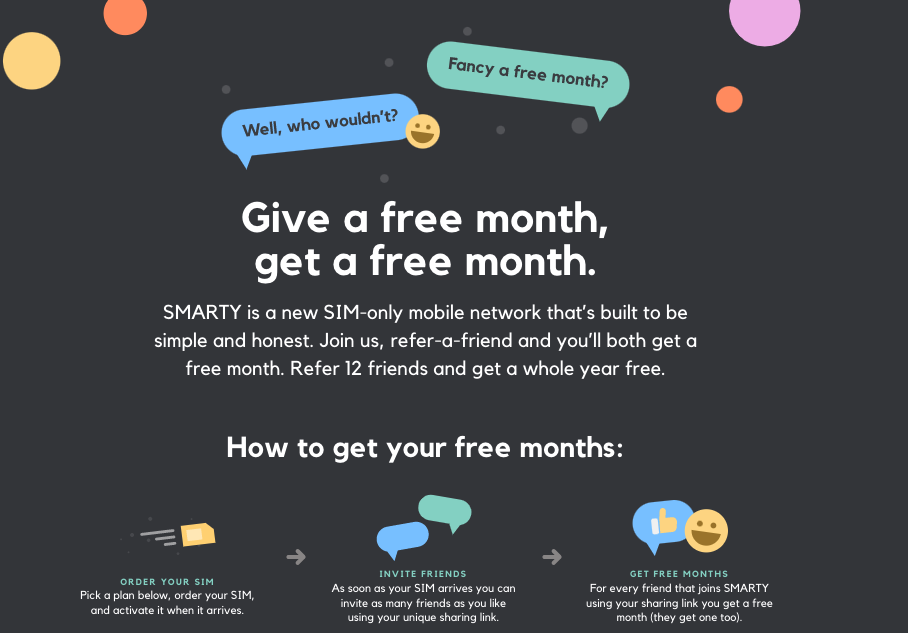
Now that you've established a product or service worth referring to, the next step is creating an incentive to encourage customers to refer your business.
As we've mentioned before, customers are only going to refer their friends if they stand to benefit from it. And the best way to ensure that customers will benefit from referring their friends is to offer a valuable incentive.
The most common type of incentive is a monetary reward, such as a discount or cashback. But you can also offer non-monetary rewards, such as free products, exclusive sales or discounts, or early access to new products.
No matter what type of incentive you offer, ensure it is valuable enough to encourage customers to take action. Otherwise, your referral program will be a flop.
Make It Easy
A referral program is only as good as its customers' engagement with it. If customers can't figure out how to refer their friends, or if they have to jump through too many hoops, they're likely to give up and move on.
Customers should be able to refer their friends in a few simple clicks, and they should know precisely what bonuses are on offer.
And while you're at it, get clear on your communication. Be concise and to the point. Cover the rewards on offer and what needs to happen to earn rewards.
By making the referral process easy and transparent, you can ensure that your customers will be happy to spread the word about your brand.
Remind Customers Over Time
It's important to remind customers about your referral programs repeatedly because even the happiest customers forget! Forgetful customers are the bane of every referral program manager's existence. It's not that they don't appreciate the benefits of referrals but forget to take advantage of them.
Customers forget about referral programs because they receive too much information through ads, emails, and social media posts. As a result, our brains are quickly overwhelmed, and we have difficulty retaining new information.
Another reason customers forget about referral programs is that they require effort from the customer. For example, to receive a reward, customers need to remember to refer their friends or family members. And let's be honest, most people are lazy when taking action on things that require effort.
The best way to combat forgetfulness is to regularly send customers reminders about your referral program through all customer touchpoints. You can do this through email, social media, text, or even in-app notifications.
Two-sided referrals
Two-sided referral programs are the most successful because they benefit both the customer and the new referral. By offering rewards to customers for referring new businesses, you can encourage customers to spread the word about your brand.
And by offering rewards to new referrals, you can ensure they have a positive experience with your brand from the start.
A two-sided referral program is a win-win for everyone involved, and it's the best way to ensure your referral program is successful.
Focus on your high-value customers
Your high-value customers are your best advocates. They're the ones who are most likely to refer their friends and family members to your brand.
The most engaged customers are also most likely vocal about their positive experiences.
Therefore, it's essential to invest in your high-value customers when you're designing your referral program.
Segment your customers based on their value to your brand, and then design a referral program tailored to their needs. Offer them higher rewards, more personalized service, and exclusive access to new products and services.
Specificity
For a referral program to be effective, it needs to be specific. That means you must clearly understand your target customer, their needs, and how your product or service can help meet those needs.
Without this level of specificity, you'll likely end up with many tire-kickers and window-shoppers who never convert into paying customers. And that's why specificity is so important: it helps you focus your efforts on attracting the right people to your referral program.
When you're specific about your referral program, you clarify what people can expect and make it more likely that they'll take the time to sign up.
After all, if they know exactly what they need to do and what they'll get, they're much more likely to follow through.
So if you want more people to participate in your referral program, make sure you're as specific as possible.
Timing
In the world of marketing, timing is everything. And when it comes to word-of-mouth marketing, that couldn't be more true. Why? Because people are most likely to talk about your product or service immediately after they've purchased it. They're online, engaged, excited about their purchase - and likely to share their positive feelings with friends.
So how can you take advantage of this?
- One way is to include a call to action on the order confirmation page. This call to action could be as simple as a button that says "Refer a friend" or "Share your experience."
- Another way to take advantage of post-purchase timing is to include a referral link in the order confirmation email (or shipping confirmation email). This way, customers can easily share your brand with their friends and family members, and you can make it even easier by pre-populating the referral link with their names and email address.
- Another magical time is when the product arrives. People are most likely to share photos and videos of their new purchases on social media. So if you include a call to action on your product packaging, you can encourage customers to share photos and videos of your product - and your brand - with their friends and followers.
If you want people to talk about your business, you need to reach out to them at the right time when they feel most positive about your product.
Tracking
A customer referral program is a great way to get insights into your customers' behavior. Here's why:
1) Gauge customer satisfaction. Satisfied customers will grow your referral program. Conversely, if you see a dip in referrals, it's a sign that something might be wrong. Maybe your product isn't meeting their needs, or they had a bad experience with customer service. Either way, it's important to nip any issues in the bud before they cause long-term damage.
2) Pinpoint where sales are coming from. Are they new sales or repeat business? Or referral driven? Knowing which channel generates the most sales helps you focus your marketing efforts (and budget) in the right place. Plus, it's always nice to see those referral numbers going up!
3) Determine customer participation rate. This metric shows how many of your customers actively participate in your referral program. If it's low, there could be several reasons: maybe the program is too complicated, or they don't see the benefits of referring others. Whatever the reason, it's essential to address it to get more people participating and reaping the rewards.
Best referral program ideas
Best Referral Program Idea #1: Contest or giveaways
A referral contest is a great way to generate massive social engagement. Participants are rewarded with extra entries for sharing their social media giveaways with others. This is awesome because it helps you build your social following and spread the word about your giveaway to your entrants' friends and family.
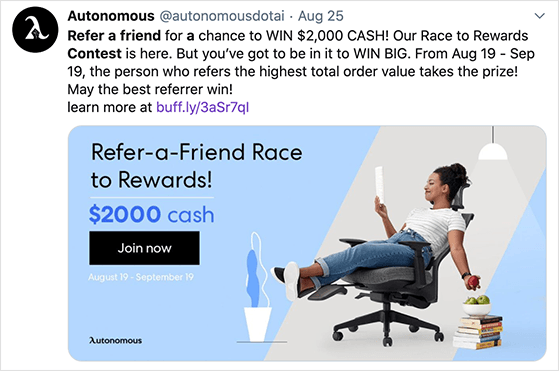
You could do this on Facebook, Instagram, etc. For example, the company Autonomous - the smart furniture company - ran a referral contest on Instagram. They offered an additional entry for every person that participants referred to the contest. This generated a lot of buzz and resulted in a significant increase in social media followers.
Best Referral Program Idea #2: Social Gifting
Regarding referral programs, social gifting is a unique approach that doesn't involve giving the referrer any rewards. Instead, the referrer sends a gift to their friends to hope they'll be as happy with the product as they are.
While this approach may seem altruistic, it can be effective in getting people to sign up for a referral program. After all, who doesn't love getting a surprise gift in the mail?
Try The World is one subscription company that uses this referral marketing approach. They let each customer send a free box to three of their friends. The only catch is that the friend must sign up for a subscription to receive the gift.
This approach can be efficient if you have a product that people are passionate about and want to share with their friends. For example, if you sell gourmet food products, your customers might be excited to share their favorite items with their friends.
Best Referral Program Idea #3: Create a strong why surrounding a cause
A strong "why" is essential to any good cause, and referral programs are no different. But before getting people to refer their friends, you need to create a strong "why" for your cause.
Why should someone care about your cause? And more importantly, why should they refer their friends? Aligning your cause with what your demographic is passionate about is a great way to create a strong "why."
For example, HealthyPaws is a pet insurance company that donates a portion of its profits to charities that prevent pet homelessness. Their cause is something their target demographic (pet owners) is passionate about, so they're more likely to refer their friends.
Plus, by donating to multiple charities, HealthyPaws can make a more significant impact than if they contributed to just one.
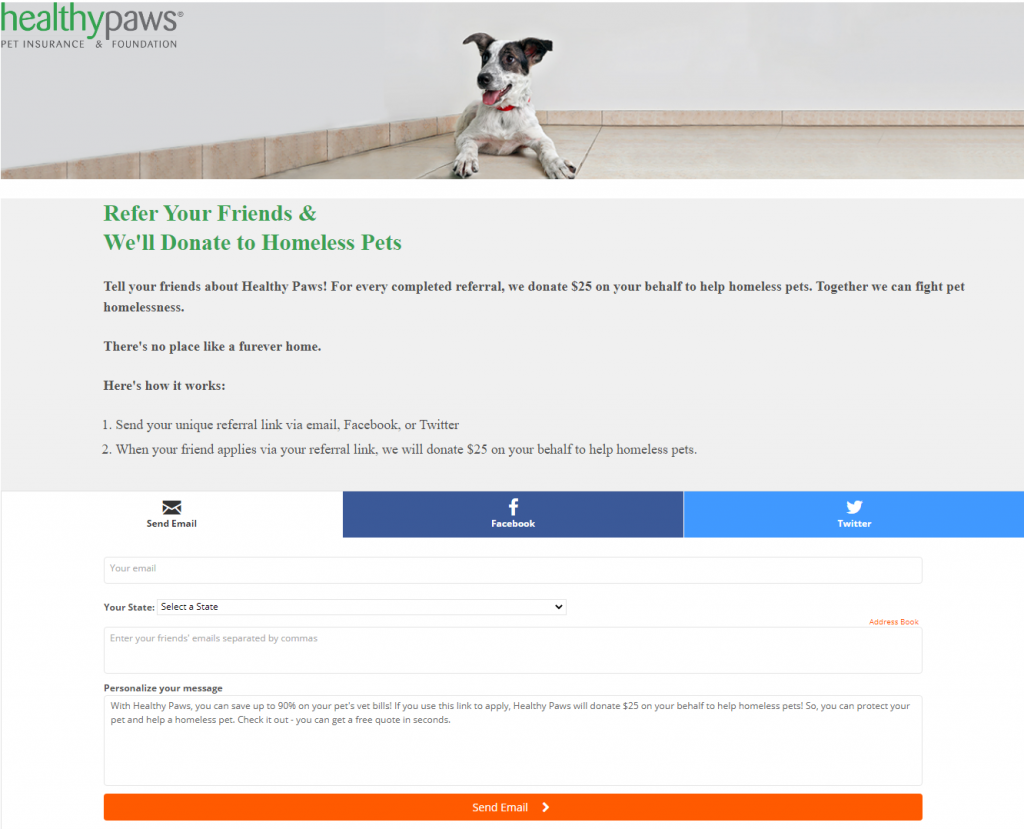
So if you're looking to start a referral program, consider what your target demographic is passionate about and align your cause accordingly. It's the best way to ensure that your referral program will be successful.
Best Referral Program Idea #4: Customer Loyalty tiers
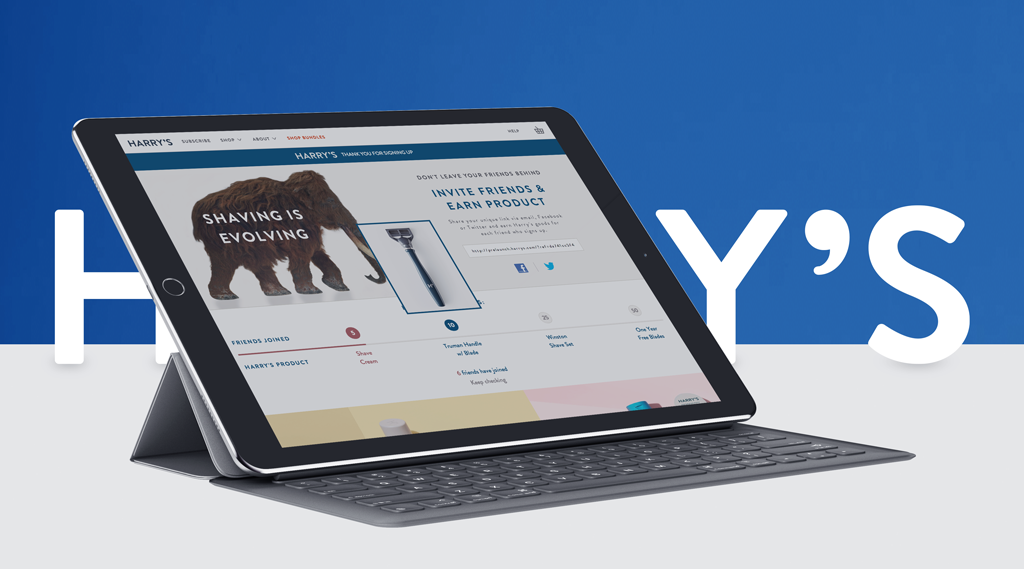
A tiered referral program is a great way to create customer loyalty and get more referrals. With a tiered referral program, customers who refer more friends or family members receive more significant rewards.
For example, Harry's razor company offered tiered rewards for referrals, starting with a complimentary bottle of shaving cream and ending with an entire year of free blades. This approach was highly successful, resulting in over 100,000 emails from participants.
The opportunity to earn more valuable rewards for referring more people is very enticing and can create advocates who are passionate about your brand. Plus, it's a fun and gamified way to increase loyalty among your customer base.
Best Referral Program Idea #5: Reward with Store/Subscription Credit
Credit-based referral programs are a great way to reward customers for referring new business.
This type of reward is especially effective for businesses with digital products, as it doesn't cost much to provide. However, store credits are still precious - customers can use them to purchase items or subscribe to services.
Best Referral Program Idea #6: Mystery Gifts
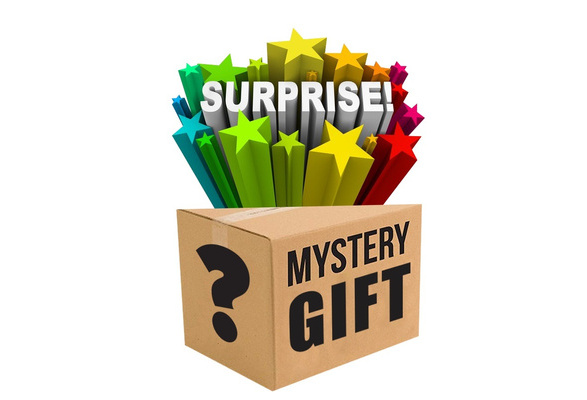
CompanyCam, a construction camera software company, recently ran a referral campaign with a twist – they offered to refer customers to a “hand-curated Mystery Box full of assorted swag.”
The beauty of sending a mystery gift is that you can throw anything in the box – from t-shirts to coffee mugs to power banks.
You can create excitement around your referral reward by keeping it a secret. Also, you don't have to purchase a particular item just for the promotion. So if you have too much stock of an item, you can get rid of it quickly to benefit your business.
CompanyCam's mystery referral boxes were a huge success, with customers referring their friends and family members in droves. So if you're looking for a unique and fun way to promote your referral program, consider sending out mystery gifts!
Best Referral Program Idea #7: How do you start a referral program?
A referral program is a great way to get new customers, but only if it's done right. Here's how to start a referral program that will get results:
- Identify your target audience. Who are you trying to reach with your referral program? An excellent place to start is with your existing customer base. How are referrals currently coming to your business?
- Come up with an incentive to motivate people to refer their friends or family. It could be a discount, a free product, or something else that's valuable to your target audience.
- Promote your referral program. Make sure everyone knows about it and how to take advantage of it. Push it out in all of your customer touchpoints, including your website, social media, email campaigns, etc.
- Make it easy for people to refer their friends or family. The easier it is, the more likely people are to do it. For example, Uber allows customers to share a Facebook message or Twitter post with their referral code.
- Finally, keep track of your results and adjust your referral program as needed. If you're not getting the desired results, try changing your incentive or promoting your program differently.
Referral programs can be a great way to get new customers, but only if they're done right. Follow these steps, and you'll be on your way to success.
FAQ
How else can you increase your referral rate?
Providing fantastic service is a great start. Customers thrilled with what you've done for them are much more likely to refer you to others. And, of course, it's important to ask for referrals. A polite request at the end of a transaction can go a long way.
What are some other benefits of referral programs?
In addition to getting new customers, referral programs can also help you build loyalty among your existing customer base. When customers feel like they're part of something special, they're more likely to stick around.
Plus, referral programs can be a great way to get valuable feedback about your business. Asking customers why they're referring you can help you identify areas that need improvement.
What is the difference between referral vs. affiliate?
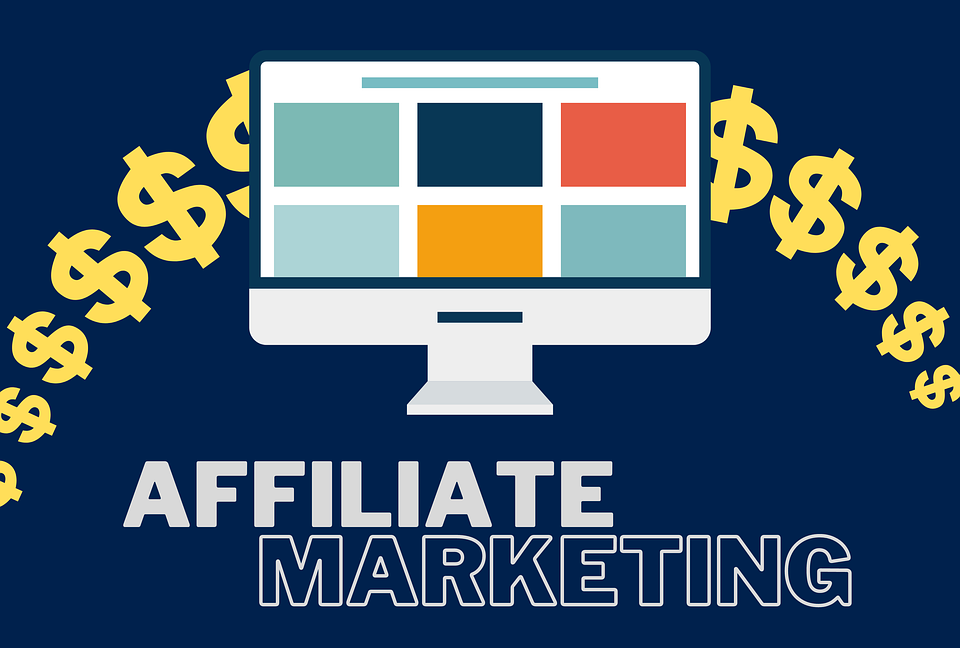
The critical difference is that affiliate marketing focuses on third-party brand advocates to send customers to your business for a flat fee, while referral marketing primarily rewards current customers. In addition, referral marketing is usually conducted internally, while affiliate marketing is focused on building relationships with external websites.
Usually, affiliate marketing focuses on providing monetary rewards (commission) for successful referrals, whereas referral marketing may reward customers with coupons, discounts, or other loyalty program benefits. In general, referral marketing is more about growing your business organically through word-of-mouth, while affiliate marketing is more about paying for advertisements.
Want to learn step-by-step how I built my Niche Site Empire up to a full-time income?
Yes! I Love to Learn
Learn How I Built My Niche Site Empire to a Full-time Income
- How to Pick the Right Keywords at the START, and avoid the losers
- How to Scale and Outsource 90% of the Work, Allowing Your Empire to GROW Without You
- How to Build a Site That Gets REAL TRAFFIC FROM GOOGLE (every. single. day.)
- Subscribe to the Niche Pursuits Newsletter delivered with value 3X per week
My top recommendations
















